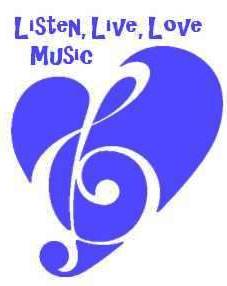Many Beginnings
Ingrid: I listened to some of your tracks of course, especially ‘C’est Nous’, the EP you first produced in 2011. I tried to translate it because I speak a little French, but I couldn’t… Can you tell us a little more about ‘C’est Nous’ … it seems that is what got you started?
Emma: I believe there are actually many beginnings to a musical journey and to life, so I would say it was definitely ONE of my beginnings. I have been performing since I was about 5 years old. I went to music school and toured and traveled with the Teen World Choir since age 11. I’ve been doing a lot of stuff. Actually, I recorded my first demo when I was 17, but it is unreleased. But this really was my first step out in the world, sharing my music, the music that is truly close to my heart which is an integration of all different kind of influences and backgrounds. So it really was that. That stepping out was (crucial) to have more confidence on stage, starting to tour and perform. I recorded it at Naropa University as part of my senior project to graduate, and I got a whole bunch of wonderful musicians involved and recording engineers and did the whole thing.
Ingrid: that is absolutely wonderful! So, that was 2011, and a lot has happened since. So, say a little more…
Touring
Emma: Starting this July I’m going to tour full-time. I am based here in Colorado, but actually based between here and San Francisco. I’ve been expanding over there, doing a lot of touring over there. I am going to be on the road full-time, choice-fully homeless.
Ingrid: … in a bus?...
Emma: In a Subaru Outback ;). So that is the big thing I am working on. The other piece of that is that I am working on a new album. About a year ago I split from my band that I had done the debut album with, and I started doing my solo thing, and with that I started looping – using a loop-pedal. So it was really the beginning of how do I be a violinist and a songwriter at the same time and still create the full sound that I long for. So I started looping, and with that came the birth of a whole bunch of new songs that feel even more true to who I am as an artist and person. I am now recording those songs with a producer in San Francisco.
Looping Pedal
Ingrid: That’s awesome! So, I don’t really know what looping is. Can you explain that?
Emma: I can, and you’ll see it in the show in a little bit. With a pedal system you can ‘record’ a section of track and then it will play it back on a loop. You can create different layers essentially.
Ingrid: I’ve seen that done before, but didn’t know the term.
Emma: It’s becoming very popular. A lot of artists find that they can be more ‘solo’ and do more by themselves.
Ingrid: You can add the layers, but then can you take them off again?
Emma: To a certain extent; it depends on what pedal system you have. I have the Boss RC 30 pedal and with that I don’t really take layers away, I mostly just add them. But people use it differently. In my heart I am a songwriter, so I loop the way a songwriter would loop, whereas someone who is more interested in long soundscapes or electronic music might loop differently. It is unique to styles.

Venues
Ingrid: That is a great explanation, for how various musicians would use the same type of equipment in a different way. So how did you get to play here at the Swirl Wine Bar?
Emma: Well, I don’t remember exactly how I found Swirl, but I tend to have a knack for finding hidden gems of venues and I know by know what I am looking for in a venue, a venue where I want to play. It really has to do with atmosphere and the kind of people that are going there and that will like my music. That is a tip for your musicians: when you are looking for a venue keep in mind that you are looking for a place that people will go that will become your fan-base. Unless you get paid a ton, which you probably aren’t at first, it isn’t worth playing at sports bars – places where my fans may not be. Though if you are a soul artist or a rock band, sports bars may be exactly where you want to play. To get back to how I found Swirl, it is probably through internet searches and Facebook. I wanted to find more venues in the Colorado Springs area. I was pretty clear on venues in the Denver and Boulder areas and the Fort Collins scene, but I wanted to play more here, so it takes just searching. I was looking at photos and read their mission statement and said ‘yes, that is a place I want to play at’.
Promote Thyself
Ingrid: Well that actually ties into what I was going to ask you next, which is: there are a lot of places where you can promote yourself, and in this case you were talking about how you found a venue where you wanted to play at, and then it is a matter of approaching them. So there are a lot of different ways to go about that. What do you use? Which sites, do you use Google, Facebook, or do you look at other musicians similar to yourself and see where they play? How do you go about promoting yourself?
Emma: I am always working the path of ‘how do I build MY fan base?’ so a lot of my promotion consists of continue to build the relationship with the people that have already expressed interest in my music. So that looks like: I have a very extensive mailing list, I blog and send blogs out every other week, I send all my shows and really interact with the people that are on my mailing list. At every show, I do not only invite people to be on the mailing list, but I actually walk around and talk to every single person that is there – if I can – and invite them to be on the mailing list. So that is a way that I promote and I tend to have a pretty good turnout from that. And second to that would be Social Media for sure; Facebook in particular, REVERBNATION and Twitter are the big ones. So I do a lot of shout outs from Social Media. Also still good old flyers and handbills.
One the one hand, there is the promoting of every show, and on the other there is the long term promotion or, how do I really build a fan-base? Right now for that, I’m starting to do a video series and put out a new video to YouTube every month of me playing and trying to draw new people in that way. I am also hooked into CD Baby and am going to write an article for their blog and try to reach more people that way. I think Melody Fusion is awesome and definitely needed because that is connecting to more music community. So the short term promotion: mailing lists, Social Media, networking sites. Long term promotion: live shows, playing shows, with other musicians whose fans may like my music and I can build my fan base that way, the touring and online mediums.

Ingrid: How much time would you say you spend per week on promotion, Social Media and being on various websites?
Emma: Honestly, probably not as much as I should! J The reason I say that… I am a total business woman – which I think most musicians need to be – and technically I think I should spend 30-40% of my time on promotion (or in the business world they’d say ‘marketing’). How much time do I actually spend? If I include booking shows and promo – that is how I have it blocked in my calendar – I probably spend 8-10 hours per week on booking and promoting.
She Sings Out Loud
Ingrid: I was very enthused to hear you have a non-profit as well and offer workshops. Could you shed a little more light on that?
Emma: Sure. First of all, it is not a non-profit. It is part of my business model. First of all, it is really important for musicians to have multiple ways to make music work for them, and this is totally my passion! I love this work as much as I love performing. It is my deepest longing to contribute to other musicians and that is what this is about. It is called She Sings Out Loud (SSOL), or pronounced ‘soul’ and in the program I help women singer-songwriters and performers move from experiencing fear, doubt and resignation about their singing and about their music to being able to own the stage with confidence, courage and connection. They can build their music career of their dreams and actually make an impact on the world with their music and their message. So that’s what SSOL does and we do that a series of mostly weekend-intensive and 3 month programs. We work with the core principle that I have discovered in myself in working with other women, which is that to be able to be confident on stage we have to first learn to receive attention and be comfortable with attention on us. So we do a deep process in women’s community, in pairs and in being up in front of the other women with just practicing being able to receive attention on us. And working through all the emotional barriers that come up around that including old engrained patterns about being allowed to have a voice in the world, it being safe to have attention on us, and it being not selfish. Really, as a musician, when you get on stage, you are saying ‘See me and hear me’ and if there is anything around ‘I am not allowed’ or ‘I shouldn’t’ or ‘Why’ or ‘Am I Selfish?’ or ‘Do I want to be famous?’ and all that stuff that we deal with, it is really challenging and that is where stage-fright actually comes from – the challenge with that.
Ingrid: …and I can see how it is a challenge to keep that healthy in the long run too, a healthy attention…
Emma: Exactly! A lot of the women that I worked with end up having major breakthroughs around relationships, their work, what it is like to be out in the world and receive attention… and deal with the unwanted attention, is that what you were speaking to?
Ingrid: Unwanted attention and maybe the craving for attention – maybe that is what it becomes about for some people…
Emma: Yeah; I believe underneath that is a lack of confidence and a lack of it being ok to be at the center of attention. And really more than that, it is not honoring the gift that we offer. Music is an incredible healing force in the world and a lot of what musicians are dealing with is ‘My music doesn’t matter’ and ‘My voice doesn’t matter’. We push so hard against that, that we’ve become obsessed with ego and attention, and trying and forcing, and proving and needing to be better. So really, when we honor that we have an amazing gift to offer, and we are allowing ourselves to receive attention, and then offering that gift fluently, it all works itself out. So that’s what it really is all about.
And then, after that is in place, what we work on is how to build a career in the music industry. How do you build a global audience around you of people that want to receive the gift that you have to offer and that are your witnesses.
Ingrid: That is very very true. There are certain songs and certain musicians that I will use for certain moods: this works for cleaning house and this works for healing emotions…
Emma: Totally!
Wisdom
Ingrid: Thank you for your gift. I am looking forward to enjoying it. Do you have any last words of wisdom you would like to share? I know you could probably go on…
Emma: I could go on forever! I am a talker. I don’t know if all musicians are like this, but I am a talker. I invite all of you who are watching this to check out my website which is http://www.shesingsoutloud.com and there is a lot more information about that work and more advice. Soon there will be a Master Class up with Melody Fusion – I hope – so check out those words of wisdom.

Emma: Trust yourself. Trust the gift that you bring. Keep diving in deeper and just remember that is never is hard. It is not hard to be a musician, it just is a process. We have to be where we are in the process. When you are the beginning of your career, and maybe you are struggling with how to book shows to put yourself out there. Or, maybe you have been doing this for a while and you are struggling with money, or maybe you are not struggling. Shoot me an email, let me know. Wherever you are, honor the process, and know that it is really at its core it is about community and connection, and there are people out there that want to support you and want to receive the extraordinary gift that you have to bring.
Blog by the MelodyFusion Team

